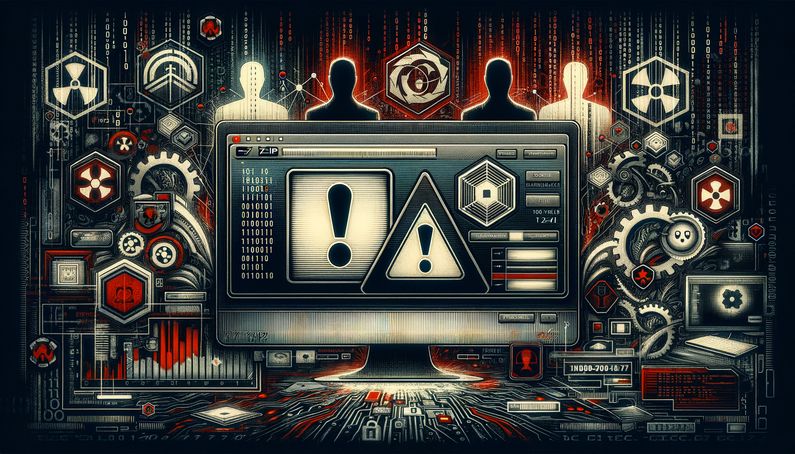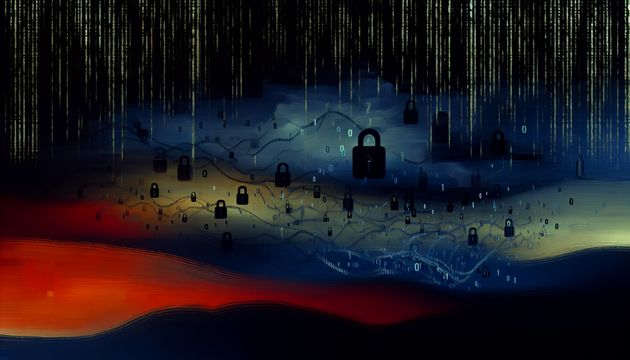
7-Zip MoTW Bypass Exploited in Zero-Day Attacks Against Ukraine: A Comprehensive Analysis
The discovery of CVE-2025-0411, a critical vulnerability in the widely-used 7-Zip file archiver, has sent ripples through the cybersecurity community. This flaw, which allows attackers to bypass the Windows Mark of the Web (MotW) security feature, has been actively exploited in zero-day attacks, particularly targeting Ukrainian organizations. The vulnerability, identified in version 24.07 of 7-Zip, enables malicious actors to execute arbitrary code by crafting deceptive archives that evade MotW protections. This has been a significant concern, especially given the geopolitical tensions in the region, where cyber warfare is a growing threat. The vulnerability’s exploitation has been linked to the distribution of SmokeLoader malware, a tool frequently associated with Russian cybercriminal activities (source).
Understanding CVE-2025-0411: The Technical Breakdown
Vulnerability Overview
CVE-2025-0411 is a serious security flaw found in the popular 7-Zip file archiver. This bug lets attackers sneak past the Windows Mark of the Web (MotW) security feature, which is supposed to keep your computer safe from harmful files. With a CVSS score of 7.0, this vulnerability allows bad actors to run unwanted programs on your computer when you open certain tricky files. It was discovered in version 24.07 of 7-Zip, but don’t worry—a fix came out in version 24.09 in November 2024. Unfortunately, this flaw has been used in cyber-attacks, especially against Ukrainian organizations. (source)
Exploitation Mechanism
Here’s how the bad guys exploit CVE-2025-0411: they create sneaky archives that slip past MotW protections. When you open these files with a vulnerable version of 7-Zip, the MotW flag, which should warn you about potential dangers, doesn’t get applied. This means harmful programs can run without any alerts. Attackers often send these files through phishing emails, using tricks like changing file names to fool you into opening them. (source)
Technical Details of the Bypass
The problem with 7-Zip is that it doesn’t handle the MotW flag correctly when dealing with nested archives. By double-archiving files, attackers can bypass important security checks, allowing malicious content to run without setting off alarms. This is dangerous because it doesn’t give any warning to your computer or you, making it easy for harmful code to execute. (source)
Impact and Consequences
The impact of CVE-2025-0411 is quite severe. It allows attackers to run any code they want with the same permissions you have on your computer. This can lead to unauthorized access, data theft, and more attacks on your system. This vulnerability has been used in real-world attacks, especially against Ukrainian organizations, amid the ongoing conflict with Russia. The attacks have been linked to the spread of SmokeLoader malware, a tool often used by Russian cybercriminals. (source)
Mitigation and Recommendations
To protect yourself from CVE-2025-0411, make sure to update to the latest version of 7-Zip, which has a patch for this issue. Organizations should also use strong security measures like email filters and educate users about phishing attacks. It’s a good idea to use security software that can catch and block harmful files, even if they bypass the MotW. Staying informed about the latest security threats is key to keeping your environment safe. (source)
Final Thoughts
The CVE-2025-0411 vulnerability in 7-Zip underscores the critical importance of maintaining up-to-date software and implementing robust cybersecurity measures. While the patch released in version 24.09 addresses the issue, the attacks exploiting this flaw highlight the persistent threat landscape faced by organizations, particularly in conflict zones like Ukraine. It is imperative for users and organizations to not only update their software but also to employ comprehensive security strategies, including user education and advanced threat detection systems, to mitigate such risks. Staying informed about emerging threats and vulnerabilities is crucial in safeguarding digital environments against increasingly sophisticated cyber attacks (source).
References
- Cybersecurity News. (2024). 7-Zip zero-day vulnerability exploited in SmokeLoader malware attacks. https://cybersecuritynews.com/7-zip-zero-day-vulnerability-smokeloader-malware/
- Trend Micro. (2025). CVE-2025-0411: Ukrainian organizations targeted. https://www.trendmicro.com/en_us/research/25/a/cve-2025-0411-ukrainian-organizations-targeted.html
- SOC Prime. (2025). CVE-2025-0411 exploitation to target Ukraine. https://socprime.com/blog/cve-2025-0411-exploitation-to-target-ukraine/
- Bank Info Security. (2025). Russian SmokeLoader campaign in Ukraine uses 7-Zip zero-day. https://www.bankinfosecurity.com/russian-smokeloader-campaign-in-ukraine-uses-7-zip-zero-day-a-27442
- Cybersecurity News. (2024). 7-Zip vulnerability actively exploited in the wild in cyber attacks. https://cybersecuritynews.com/7-zip-vulnerability-actively-exploited-in-the-wild-in-cyber-attacks/



